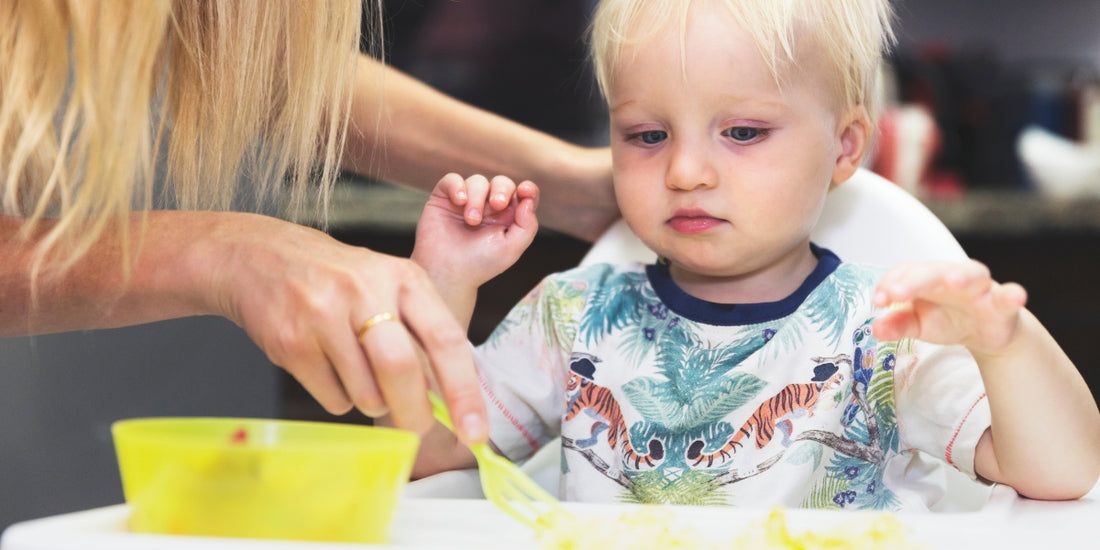Sophie Christophy answers your questions.
How can I create a consent-based environment around food and eating, when I want to also ensure that my children eat a healthy balanced diet? I worry that facilitating the children’s wants and preferences is going to mean that they won’t necessarily eat the things that they need to be healthy, and that they are too young to make informed independent choices about their diet and what their body needs.
When it comes to food, there are a number of ways in which you can work towards a consent-based way of being together as a family, and away from the traditional patriarchal/dominator type of dynamic.
One significant way is to give children agency over the process of eating itself. Eating is an intimate act – we are putting food into our bodies, after all. With that in mind, for children to experience bodily autonomy in the act of eating, they should be free to control it for themselves. This means that adults need to resist the temptation to micromanage or create an emotionally charged situation around food. We see how this can be possible for even the youngest of children, through babies feeding on demand, and baby-led weaning. As children get older, and their ability and interest in accessing different foods increases, this can become more challenging for parents who have a set idea of what is healthy and what is not.
We all have beliefs, and things that are important to us, and likely those include the diet that we feel is best for ourselves and our family. This could be very different from parent to parent and family to family, depending on lived experience, resources, culture and many other factors. Food isn’t a simple subject: there are many different perspectives on what it means to have a healthy relationship with food and with our bodies.
As parents, we have significant privileges that our children do not, and rather than ignore that reality it can be useful to think about how we might want to exercise and share that privilege with our children. As adults, we have greater freedom of movement and decision-making, and greater access to resources and at times information than our children do. Generally we are the ones who do the food shopping.
We can’t help but influence our children, but we can be mindful, aware and open about what we are doing and why. As parents who care about children’s rights, we are aware of our duty to consider how we can support our children’s best interests. Determining what is in their best interests also means considering their opinions and needs.
It is worth considering here what things are important to you about food and eating, and why, and whether these ideas are shared by other members of your family. Can you take a whole-family approach, or is it necessary to consider how to include different family members’ preferences, perspectives, ideas and needs? What things are just totally out of your comfort zone and beliefs about what is safe for your family and what it means for you personally to be a ‘good parent’, and where is there opportunity for flexibility? To what extent can you accommodate individual preferences when it comes to food, within your personal and practical limitations?
Parents can use their adult privilege to create a food environment in their home that reflects the preferences of family members whilst maintaining their own integrity when it comes to their beliefs about what it means for their family to be ‘healthy’. Then, within that, family members can access food from what is available without causing stress to the parent, because they have (in consultation) chosen what foods are available in that environment.
For things to be consensual, it is necessary for choices to be as informed as is possible. Having conversations about the food that we put into our bodies and how our bodies work, that are age- and stage-accessible, and questioning rather than preaching, are key. These conversations are also a chance to demonstrate that as parents we are open to adapting and changing our minds when new or different information becomes available to us, or our circumstances change in some way. This will be an ongoing process in families that are working towards a consent-based approach, as will acknowledgement that we are all fallible, learning, growing, and doing the best that we can.
____
Sophie Christophy lives with her two children and husband on the Herts/Essex border, though she loves to travel. She is a researcher, writer and speaker exploring the intersection of parenthood, childhood, education and consent. She shares her work on Consent Based Education and Parenting in workshops and courses. sophiechristophy.wordpress.com
Published in issue 53. Accurate at the time this issue went to print.







